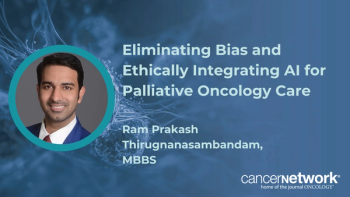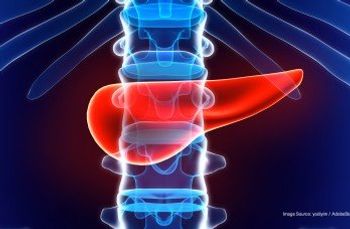
FDA Grants Approval to Nivolumab as Adjuvant Treatment of Resected Esophageal/GEJ Cancer
Adjuvant nivolumab for resected esophageal or gastroesophageal junction cancer was granted full approval by the FDA based on statistically significant improvements in disease-free survival over placebo in a phase 3 trial.
Nivolumab (Opdivo) as adjuvant therapy following complete resection of esophageal or gastroesophageal junction cancer with residual pathologic disease in patients who previously received neoadjuvant chemoradiotherapy was approved by the FDA, according to the company responsible for developing the drug, Bristol Myers Squibb.1
The supplemental biologics license application for this indication was based on results from the randomized, multi-center, double-blind, phase 3 CheckMate 577 trial (NCT02743494), which examined nivolumab versus placebo as neoadjuvant therapy in patients with resected stage II/III disease.
“Locally advanced esophageal and gastroesophageal junction cancers are aggressive tumor types that often require multiple approaches to address the disease, including chemotherapy, radiation and surgery,” Ronan J. Kelly MD, MBA, director of the Baylor Scott & White Charles A. Sammons Cancer Center, and W.W. Caruth Jr., Endowed Chair of Immunology at Baylor University Medical Center, said in a press release. “Even after neoadjuvant [chemoradiotherapy] followed by surgery, there may be a high risk of recurrence for patients who do not achieve a pathologic complete response. In the CheckMate-577 trial, we saw a doubling in median disease-free survival compared to placebo, which suggests that Opdivo could become a new standard of care for these patients. This is exciting news, providing renewed hope.”
After neoadjuvant chemoradiotherapy and complete tumor surgical resection (trimodality therapy), a total of 794 patients were randomized to receive either placebo (n = 262) or nivolumab (n = 532) at a dose of 240 mg by intravenous infusion every 2 weeks for 16 weeks followed by placebo or 480 mg nivolumab every 4 weeks. Participants continued treatment until disease recurrence, unacceptable toxicity, or withdrawal of consent, with a maximum of 1-year total treatment duration. The primary end point of the trial was disease-free survival (DFS), with a key secondary measure of overall survival (OS).
Median DFS for patients treated with nivolumab was 22.4 (95% CI, 16.6-34.0) months versus 11.0 months (95% CI, 8.3-14.3) with placebo (HR, 0.69; 95% CI, 0.56-0.85; P = .0003). This represents a 31% reduction in the risk of disease recurrence or death in patients treated with active therapy versus the control.
An exploratory analysis in patients with adenocarcinoma (n = 563), who represented a majority of the overall population (70.9%), revealed a median DFS of 19.4 month (95% CI, 15.9-29.4) with nivolumab compared with 11.1 months (95% CI, 8.3-16.8) with placebo (unstratified HR, 0.75; 95% CI, 0.59-0.96). In patients with squamous cell carcinoma, the median DFS in each group was 29.7 months (95% CI, 14.4 to NE) and 11.0 months (95% CI, 7.6-17.8), respectively (unstratified HR, 0.61; 95% CI, 0.42-0.88).
The known safety profile of nivolumab includes the risk of severe and fatal immune-mediated adverse effects, such as pneumonitis, colitis, hepatitis and hepatotoxicity, endocrinopathies, nephritis and renal dysfunction, dermatologic adverse reactions.
“Esophageal and GEJ cancer patients with residual pathologic disease following neoadjuvant [chemoradiotherapy] and complete resection face a high risk of disease recurrence; however, the predominant option for these patients has been surveillance,” Adam Lenkowsky, senior vice president and general manager of US Cardiovascular, Immunology and Oncology at Bristol Myers Squibb, said in a press release. “Today’s news marks an important step for patients as well as meaningful progress toward our commitment to pioneering immunotherapy treatment options in earlier stages of disease where there is the potential to reduce the risk of recurrence.”
Nivolumab is currently approved to treat various hematologic and solid tumor malignancies, including non–small cell lung cancer, renal cell carcinoma, colorectal cancer, and classical Hodgkin lymphoma.2 Previously,
References
1. U.S. Food and Drug Administration Approves Opdivo® (nivolumab) as Adjuvant Treatment of Completely Resected Esophageal or Gastroesophageal Junction Cancer in Patients who have Received Neoadjuvant Chemoradiotherapy. News release. Bristol Myers Squibb. May 20, 2021. Accessed May 20, 2021. https://bit.ly/3406lmm
2. Opdivo [package insert]. Bristol Myers Squibb; 2014. Accessed May 20, 2021. https://bit.ly/3ftWRFs
Newsletter
Stay up to date on recent advances in the multidisciplinary approach to cancer.











































